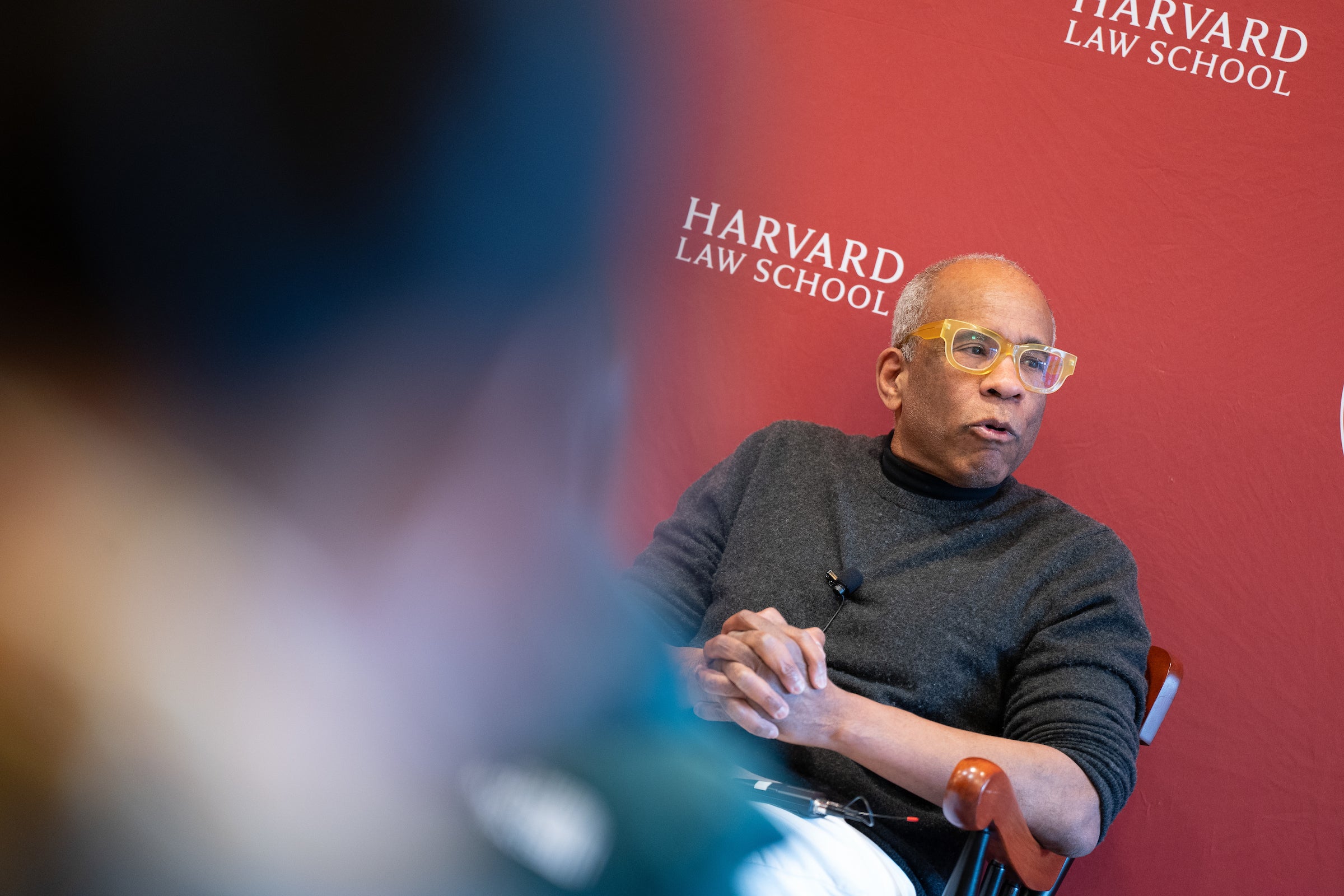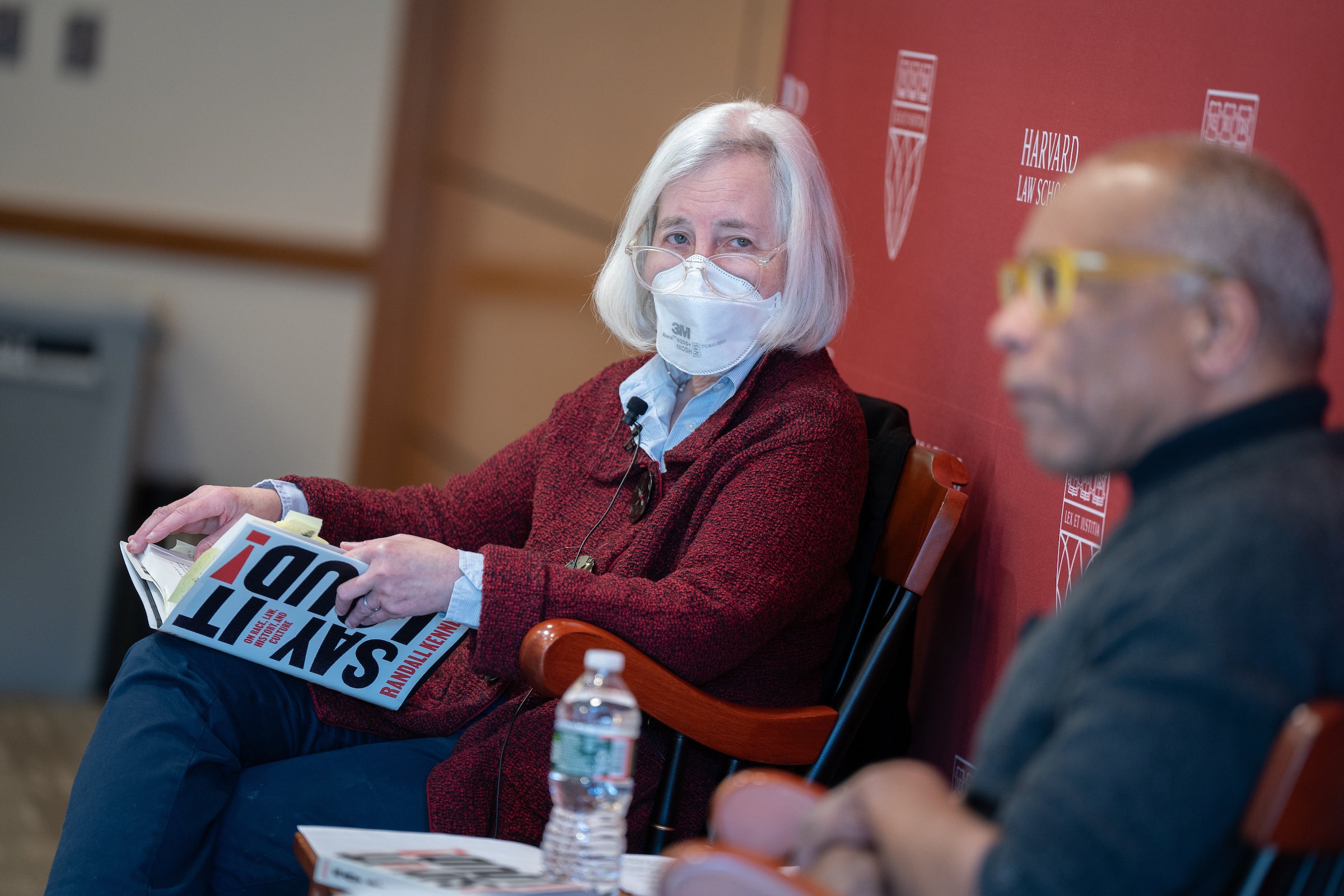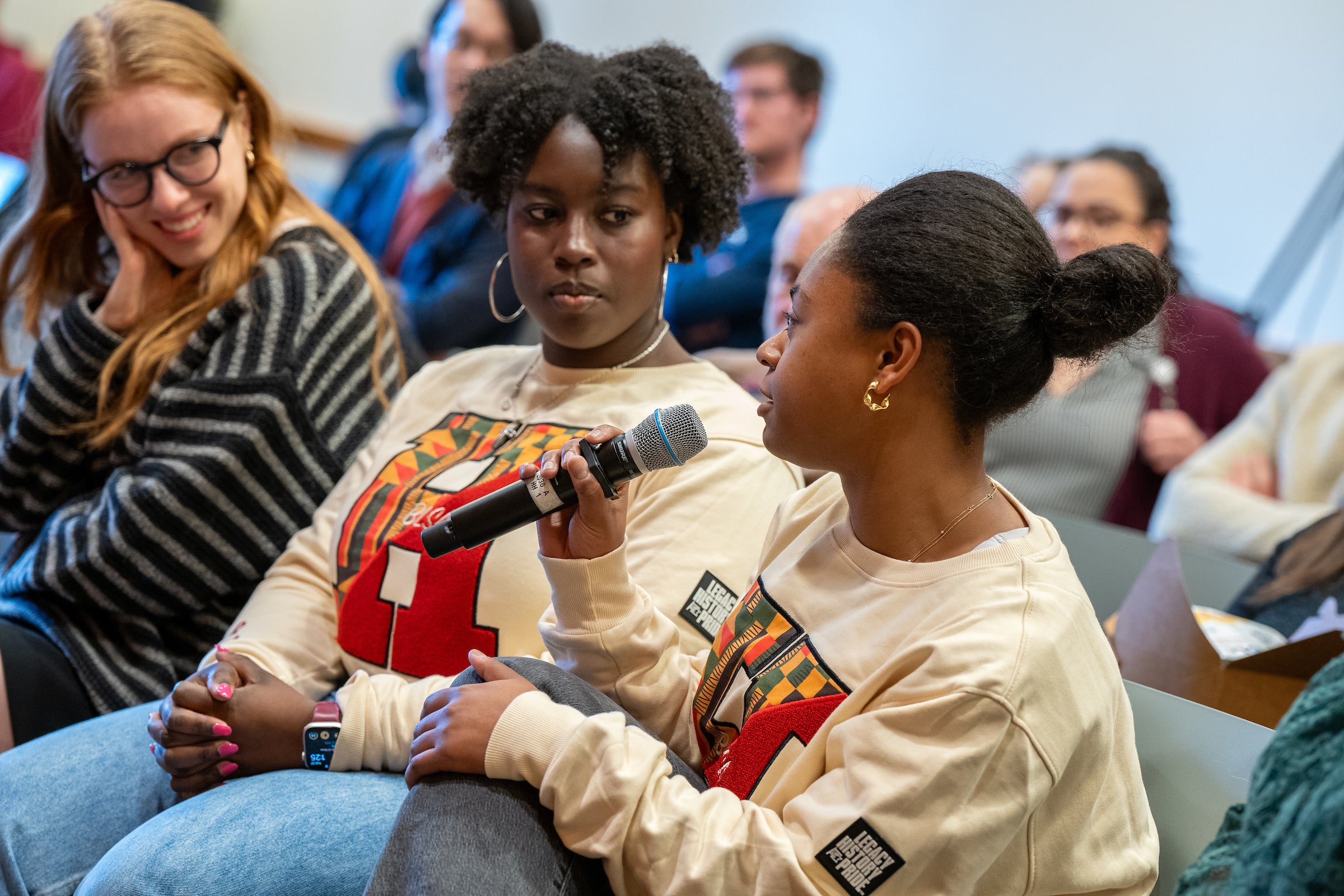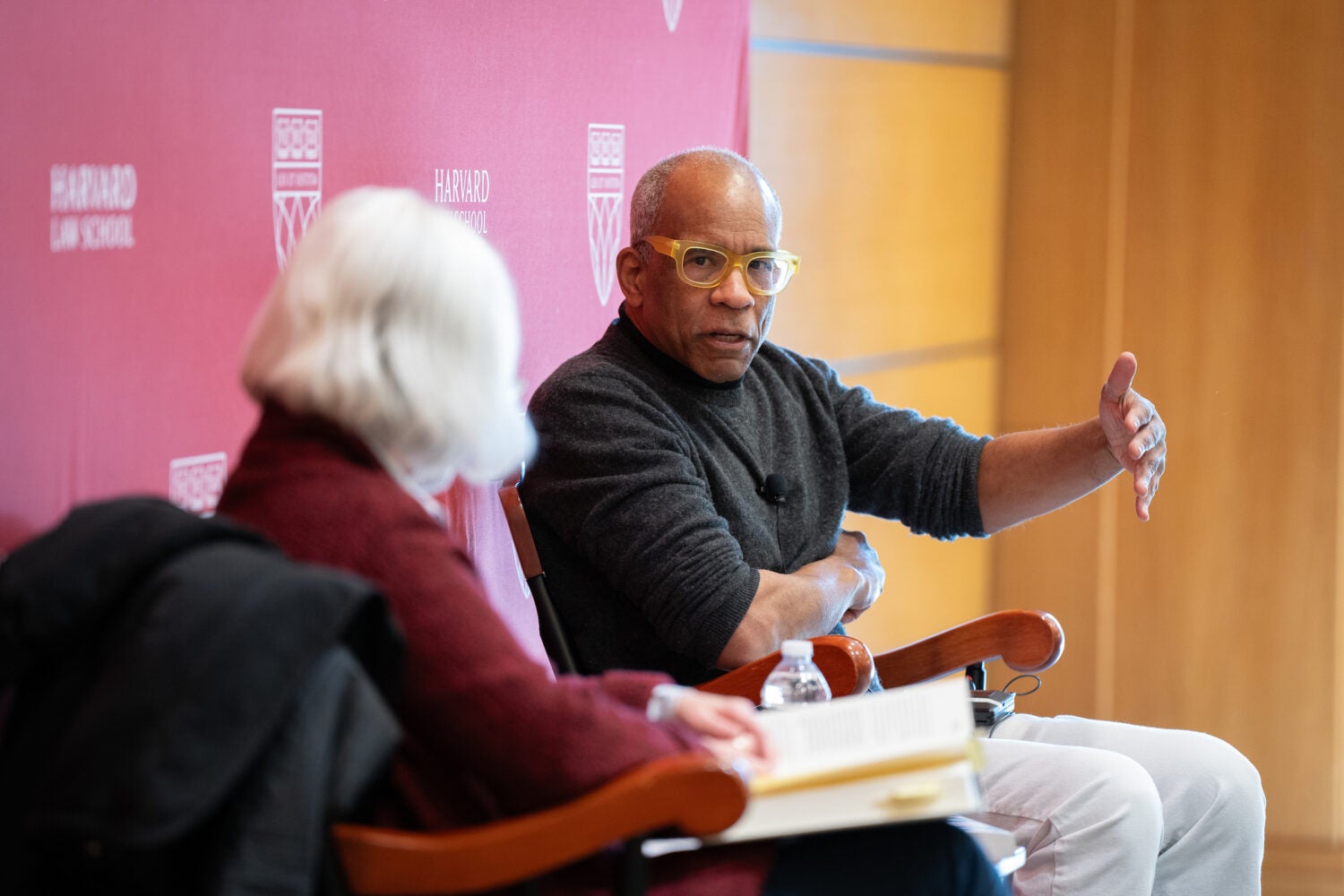During a recent conversation, Harvard Law School Professor Randall Kennedy explained how his book, “Say It Loud!: On Race, Law, History, & Culture,” written in isolation during the COVID-19 pandemic, jumps across a broad range of controversial topics, from the memorialization of racist historical figures to the limits of Brown v. Board of Education. He also shared hopes that his work will provide a fresh perspective on historical topics such as the Nat Turner slave rebellion and the enforcement of the Fugitive Slave Act of 1854.
Kennedy was joined by Professor Martha Minow for the latest installment of the regular book talk series hosted by the Harvard Law School Library featuring works by Harvard Law faculty. Prompted by Minow, Kennedy was eager to share his inspiration for several chapters in the book. Kennedy explained how the chapter “Anthony Burns and the Terrible Relevancy of the Fugitive Slave Act,” for example, stemmed from a thought experiment he undertook in years past.
“There used to be a program in which federal judges from all around the country would come here for two or three days and the faculty here would interact with the judges,” Kennedy recalled. “I chose as my subject the Fugitive Slave Act of 1854, which empowers slave masters to recapture their enslaved property all over the United States. The question is — let’s imagine we are in 1856 at Harvard Law School, let’s imagine that somebody bursts in the door, and says, ‘There is a fugitive slave in Boston, and he is jailed. What are we going to do about it?’”
Kennedy said he found the experiment’s results noteworthy.
“I did this at least five times and one thing that I thought was really striking was there was not one judge who brought up the question of nullification or urged lying about it,” he recounted. “None of the judges were willing to do that. I would push them — on one hand, we have the law. And on the other, there’s justice. Are you willing to cross that line? None of them were.”



Kennedy also seized the opportunity to discuss a classroom exercise involving Nat Turner — an enslaved person who staged a rebellion in Virginia in 1830. He recalls that while reading “The Confessions of Nat Turner” as a class, he was surprised at the lack of response to a particularly violent proposition.
Kennedy explained, “On page 20 of ‘[The] Confessions [of Nat Turner],’ Nat Turner is approached by a principal deputy who reports a problem — ‘We killed everyone in the last house, but we forgot to kill the baby, so I’m going to go back and kill the baby.’ … I ultimately asked, ‘Is there anything an enslaved person could do that would prompt you to say that they acted in an immoral way?’ If the answer is yes, then the question would be whether there was any agency on the part of the enslaved person in that jurisdiction that could adjudicate that. It was the silence and tenseness of that conversation that made me think, ‘Ah, this might be an interesting one.’”
When asked about his favorite part of the book, Kennedy was quick to highlight his gratitude for the Harvard Law library staff for their remote assistance: “My favorite part of the book is the acknowledgement. Acknowledgments really mean a lot to me … I write in the acknowledgments how grateful I am for the people who helped me do what I do. I have to put at the top of the list, the library staff. I was not in the library during the entirety of the writing of this book, this book was written in the middle of the pandemic. I was only able to write the book because of the can-do attitude of the people who run the library here and who make the library go — particularly, the Reference Librarians.”
In the acknowledgements section of his book, Kennedy mentions by name library staff: Jennifer Allison, Deann Barmakian, Maya Bergamasco, Catherine Biondo, AJ Blechner, Mindy Kent, Lisa Lilliott, Anna Martin, Rachel Parker, Michelle Pearse, Steven Wiles, Aslihan Bulut, Claire DeMarco, Meg Kribble, Tim McAllister, Heather Pierce, Louise Ragno, and George Taoulsides.
Near the end of the conversation, Kennedy also shared how some of the chapters in his book — such as, “Why Clarence Thomas Ought to Be Ostracized” — serve as vehicles for explaining how his thoughts on some issues had changed. Despite formerly defending the U.S. Supreme Court justice in a past work entitled “Sellout: The Politics of Racial Betrayal,” Kennedy said that this new chapter was intended as a concession that his original assessment was off the mark.
“I changed my mind,” admitted Kennedy. “In my view, the positions [Thomas] has taken and the way he has comported himself over the past 25 years have been tremendously detrimental to the United States of America and the people here.”
In particular, Kennedy cited the landmark 2013 decision Holder v. Shelby County — in which the majority declared Section Four of the Voting Rights Act unconstitutional and Thomas argued for striking down Section Five as well — as a ‘turning point’ in his overall views on Thomas’ jurisprudence. During the Q&A section of the event, former Supreme Court Justice Stephen Breyer, who teaches at Harvard Law and was in the audience, said he believed that Thomas’s nearly three decades on the Court and his personal history must be considered as part of any appraisal of his tenure.
While admitting that the two often found themselves on different sides of challenging legal questions, he added that, “It’s hard to put yourself in the shoes of another person.”
In response, Kennedy reiterated that his criticism of Thomas was confined to his official actions as a jurist.
Kennedy’s new book “Say It Loud!: On Race, Law, History, and Culture,” a collection of 29 essays, is now available in HOLLIS.
Want to stay up to date with Harvard Law Today? Sign up for our weekly newsletter.
